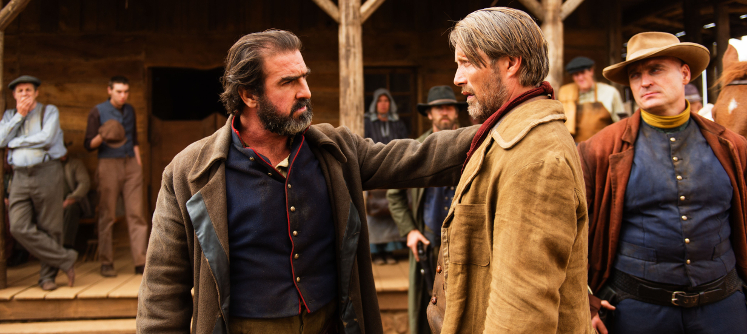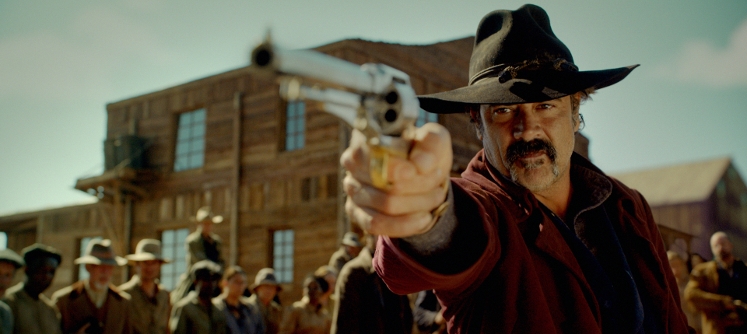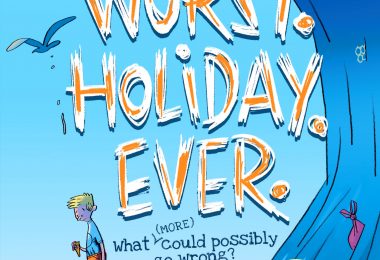In new film The Salvation, the spaghetti western gets a Danish twist!
Recent years have seen something of a western renaissance in Hollywood, what with the Coen brothers’ exceptional True Grit remake and of course, Tarantino’s spectacular Django Unchained. Now, Kristian Levring continues the time-honoured tradition of European directors making their mark in the Old West with his new film, The Salvation.
Levring’s love letter to the classic western sees Danish ex-pat Jon, (played by former Bond villain, Mads Mikkelsen) reunited with his family after having settled in late 19th century America. But, being the ‘Wild West’, tragedy quickly befalls them and sets Jon off on a revenge fuelled rampage. Rest assured, just as the poster promises, “Bad men will bleed.”
We caught up with the director to talk childhood inspirations, the resurgence of the genre and Europe’s place in the Old West.
Were you a fan of westerns growing up?
Yes, my love of westerns came from my childhood. In Denmark, we only had one television channel growing up, so my first encounter with film was through westerns, and of course at that age the first movies you watch stay very strongly with you. I think every person is attracted to different things, but there was something in westerns, a combination of these landscapes but also a certain simplicity in the tales.
What appeals most about these films?
Westerns are morality tales, and the morals are quite easily accessible. I’ve made films which were much more psychological, but westerns aren’t deeply psychological at all. They’re more mythical and simplified and I think that I find that very attractive to work with. At the same time I felt that, because I’d seen so many westerns in my childhood and as a teenager I knew the genre so well, it was almost like coming home.
How did you and Anders Thomas Jensen go about creating the story and writing the script?
We wrote four drafts and no major changes were made, just the normal aspects that you add and remove to better the story. But Jon coming to the station to pick up his family and the horrible thing that happens in the stagecoach which sets off the events of the film, that was always there. The film is about revenge and the consequences of revenge, which is a very much a classic western theme, and I wanted very much to do a classic western – the kind of western I loved when I was a kid but with a modern take.
Being in a western is something of a childhood dream for a lot of people. What was the atmosphere like on set?
There was a lot of interest from actors when we announced that we were doing a western and although we wrote the part for Mads (Mikkelsen), he had wanted to do a western for a while. So there was a lot of childish enjoyment, you know, horses, belts, boots, guns, everyone starts walking in a different way – sometimes I couldn’t stop laughing! It was a lot of fun. I think when you make something that has a darker side to it, it’s quite important that you have a lighter spirit on set because everything can get so heavy.

Keep an eye out for an appearance from Manchester United legend Eric Cantona.
Until recently it seemed that the western genre had died out. What do you think has contributed to its resurgence?
Is it really a resurgence? In the 30s, 40s, 50s and 60s, I think half of American films were westerns, and then something happened and they were largely gone. I see westerns today as someone gravely ill, getting visited by different doctors every now and again who pump a bit of life into their veins, sometimes successfully, sometimes not. I’m not sure it’s really alive in the same sense as the old days of Hollywood because, say Warner Bros. would have their western town in the middle of the studio, so would all the big studios, and in that sense it’s not really the same.
Why do you think the studios gave up on them?
If we compare them to gangster films, which was the other big genre of the time, you can see how and why that genre is still going strong. I think it probably has to do with the notion of the Old West, the problems of that era seem quite far removed now, whereas we still have gangsters and mobs and crime present in society today so the interest is still there.
Some of the greatest westerns ever made were created by European directors. Why do you think these directors have done so well with the genre?
I think there are many different answers for this. If you take the best example, which for me is probably Sergio Leone, he loved westerns but his earlier work was about Greek gods and were not great films. But, you know, he found westerns and that genre was also very mythical in a sense and Clint Eastwood, Henry Fonda, Charles Bronson, they’re almost like gods in these films – the golden cardinal, the women bringing the water – I think he was attracted to that side of it, the epic storytelling.
Is that part of what attracted you personally?
I think the other element, which was very much my way in to it, was that the Old West was actually where all the European immigrants went, the Poles, the Irish, the Germans. So actually the story of the west is very much also the story of Europe. That’s why I feel I’m within my rights to make this film, because it’s also my story. It’s a story of Denmark.
The Salvation is out now in UK cinemas.








